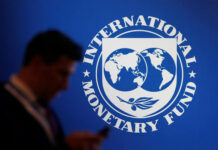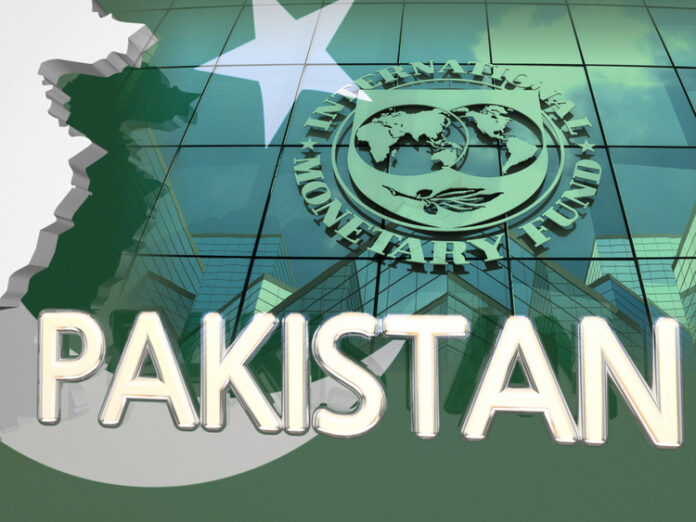ISLAMABAD: The International Monetary Fund (IMF) has revised the Federal Board of Revenue’s (FBR) target to Rs3,908 billion from Rs48,03 billion, showing a massive cut of Rs895 billion due to the coronavirus pandemic.
The actual target of the tax department was Rs5,555 billion for the current fiscal year, but due to its poor performance in the first two quarters of the ongoing fiscal year, it was revised to Rs4,803 billion.
In its report, the IMF has projected that the FBR can collect Rs5,101 in FY20-21, Rs6,100 billion in FY21-22, Rs6,956 billion in FY22-23, Rs7,723 billion in FY23-24 and Rs8,513 billion in FY24-25.
The international lender stated the government’s expenditures will also increase due to the pandemic. Previously, the projected expenditures were Rs8,767 billion, however, the latest projection puts the figure at Rs8,883 billion. The government’s expenditures are projected to surge to Rs12,577 billion in FY24-25.
The report revealed that there was a cut of Rs100 billion in Public Sector Development Programme (Rs588 billion to Rs488 billion) against the target of Rs701 billion.
It also stated that the government’s overall debt, including its debt towards the IMF, will also surge to 85 per cent in comparison to the previous projection of 80.4 per cent, including domestic debt of 53.8 per cent and external debt of 31.5 per cent.
The report stated that prior to the COVID-19 shock, external imbalances had been significantly reduced and the economy was poised to strengthen. Growth was projected at 2.4 per cent in FY20, accelerating to 3 per cent in FY21. The current account deficit was expected to narrow to 2.2 per cent of Gross Domestic Product (GDP) from 4.9 per cent of GDP the previous year, with reserves topping $12.5 billion (2.5 months of imports).
On the other hand, inflation, which had been hit by a series of temporary food price shocks, was expected to gradually return towards the State Bank of Pakistan’s (SBP) forecast range of 11–12 per cent and to reach the 5–7 per cent inflation objective by late FY21. The fiscal performance was strong until December 2019, with a primary surplus of 0.7 per cent of GDP and public debt at 84 per cent of GDP. The banking system remained broadly sound, with system-wide capital adequacy ratio at 17 per cent in December 2019 and the non-performing loan (NPL) ratio at 8.6 per cent, with the bulk of NPLs provisioned (81.4 per cent).
Moreover, the report mentioned that the near-term economic impact of COVID-19 is expected to be significant. While uncertainty is high, Pakistan’s economy will be impacted through external and domestic channels: Externally, the global downturn, including in Pakistan’s major export markets (China, the EU, and the U.S.), would reduce demand for Pakistan’s exports, especially textiles, and lead to more limited financial flows. In addition, remittances are expected to decline sharply. Domestically, the impact of containment measures together with heightened uncertainty and a generalised loss of confidence by business and consumers are likely to result in concurrent demand and supply shocks feeding off each other, with severe effects on investment and output.
It is worth mentioning here that the IMF has also approved $1.38 billion under the Rapid Financing Instrument (RFI) apart from the Extended Fund Facility (EFF) to support Pakistan’ economy during the pandemic.
























